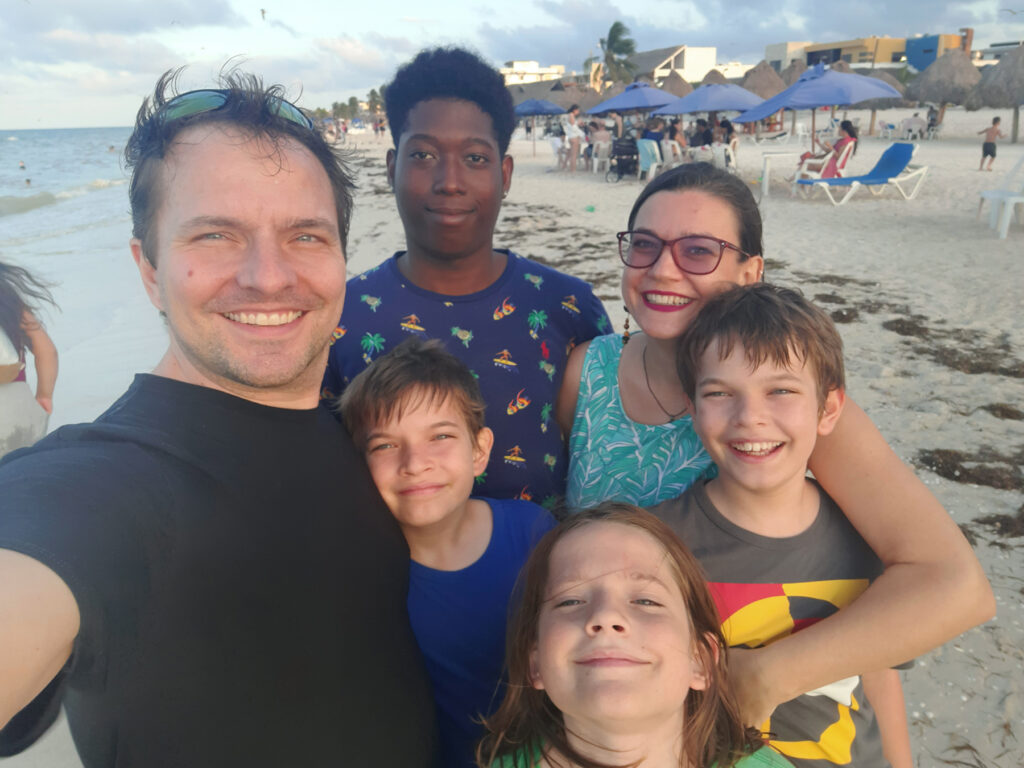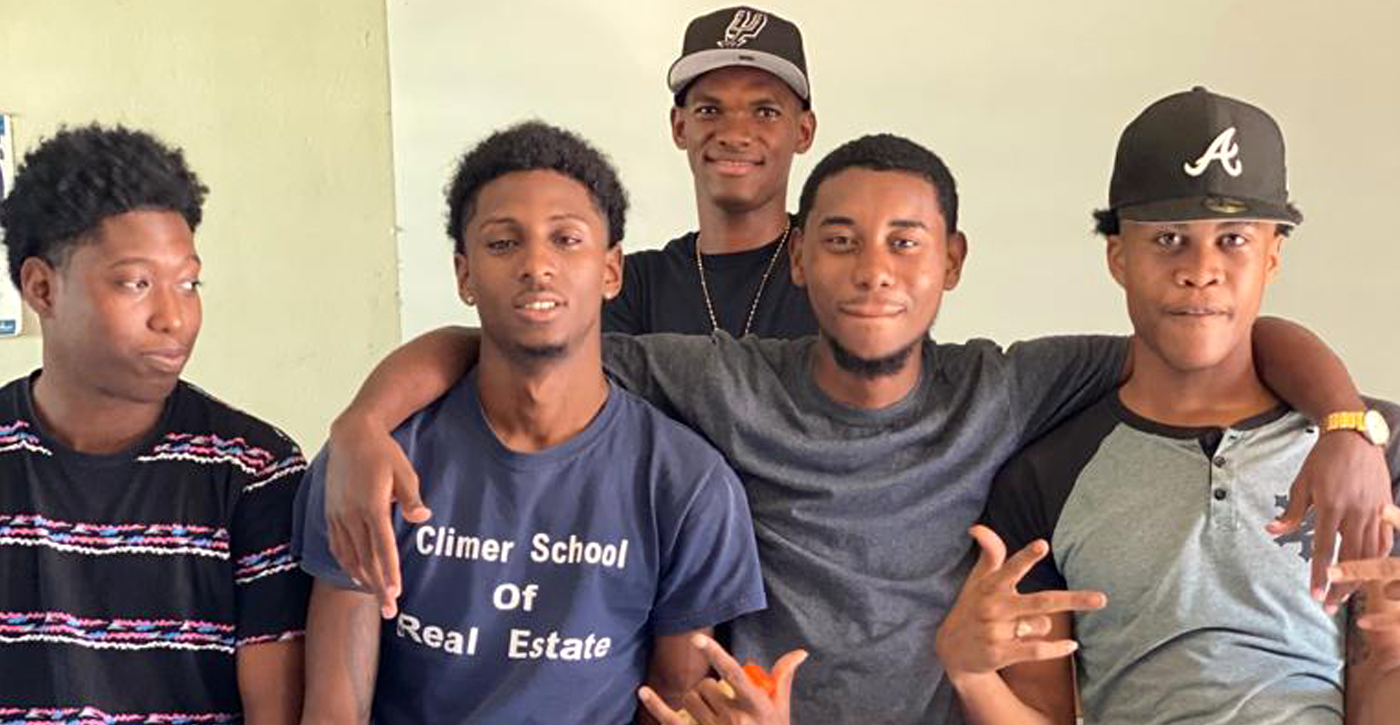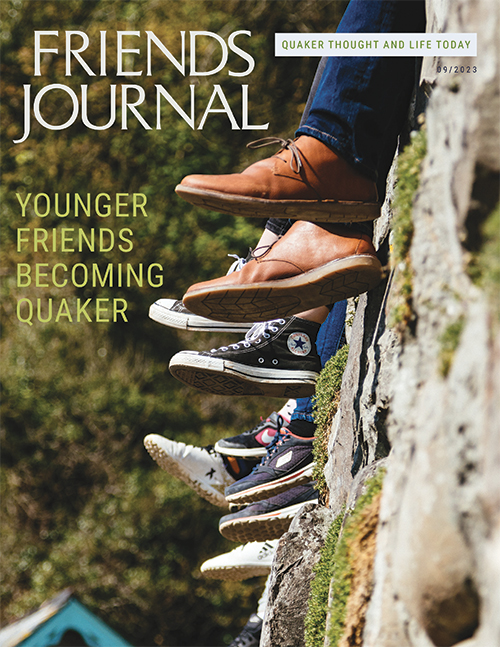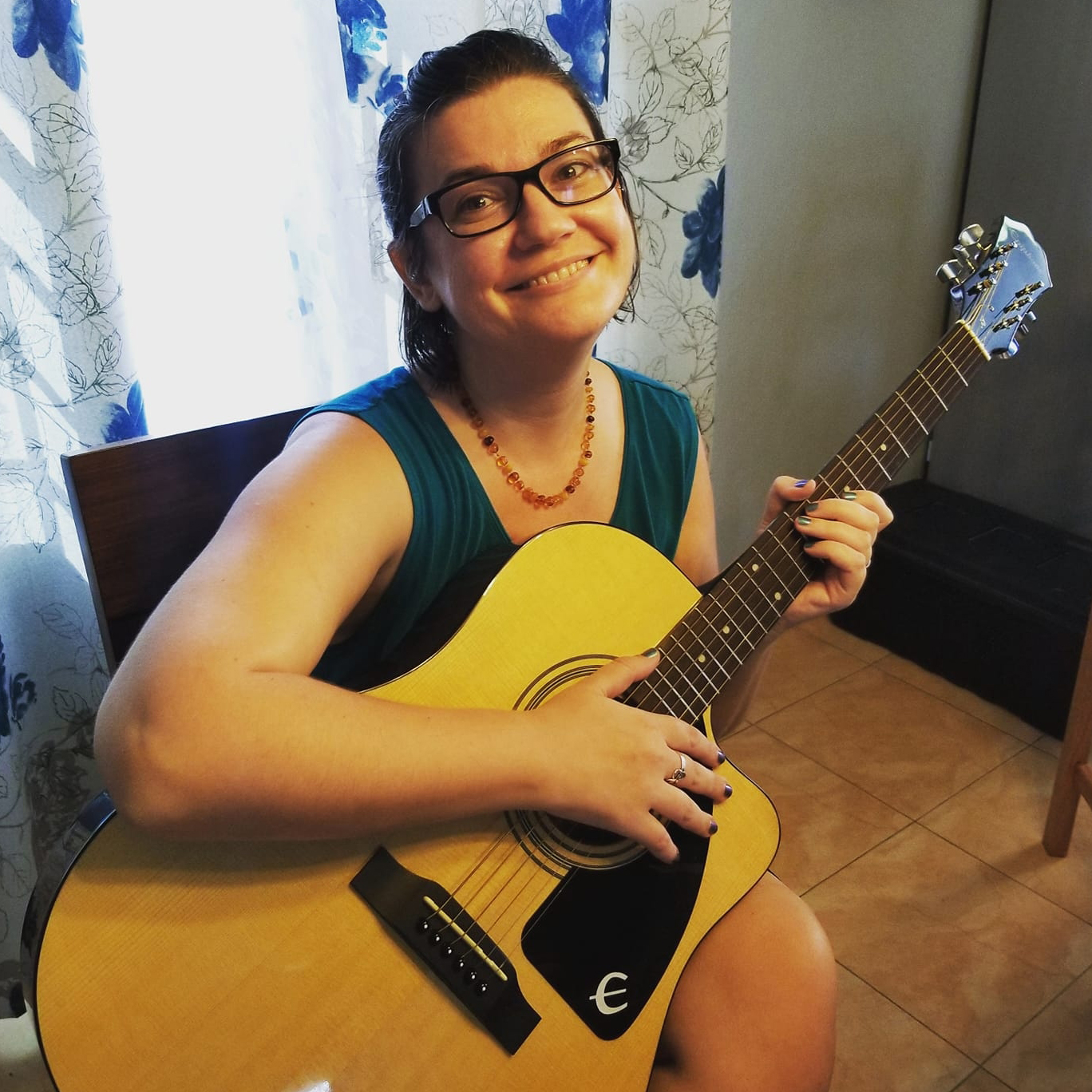Encounters with Young Friends in Belize
What ultimately drew me to Quakerism was the same thing that’s drawing young people in Belize City: an enthusiastic welcome to us, exactly as we are.
I became a Quaker, along with my husband and my sister, around my 31st birthday. I was looking for a church that welcomed women to preach. I had no desire to preach myself, but we wanted our children to know that God loves girls just as much as boys and that gender has no relevance to the image of God in us. I became convinced by reading Quaker theological reflections, old and new, which I was able to access online. I read all day for weeks, and then in the evenings, I told my husband and sister what I’d been reading. We were amazed at how deeply it all resonated within us.
We were in Mérida, Mexico, and it was before Zoom everything, so in the absence of any meeting near us, we met together for worship. Over a few months, we became a little Quaker house church in the Yucatán Peninsula. About six months after having become convinced, I started studying for a master’s of divinity degree at Earlham School of Religion (ESR). I thought if this little house church was going to be our faith community for the foreseeable future, someone should know how to do things like funerals, weddings, and helping us through times of theological questioning. My whole family received a warm welcome and affirmation from many Friends at ESR, from various Quaker organizations, and from local and yearly meetings. Just before I graduated, I accepted a job with Friends United Meeting, directing their ministries in Belize City. That’s where I am right now: I am writing in Dale Graves Hall while this year’s group of graduates practices for their graduation tomorrow morning.
Here in Belize, I have gotten to know many young people. I watch every day while Quaker values influence and shape the young lives of our students at Belize Friends School, even though none are Quaker themselves. They benefit from our emphasis on being a learning community where every voice is valued and anyone can be a leader. They come to understand over the course of their time here that they matter and that they are precious. I tell them that they are made of God and stardust, and they are invaluable and irreplaceable. We practice being quiet together and listening for the voice of the Spirit.
I witnessed some young people become some of the first official members of Belize Friends Church. The young men we have at church are here because a student from our school, Jeremy, started attending church. Then he brought a friend who brought cousins, and they brought more friends. Now we have a church baby because one of those boys had a baby; now he comes to church every Sunday with his partner and their baby. Recently, we’ve had some children coming, and also some of their parents. The majority of our church here in Belize is under 40, and most of us are under 22.
During the pandemic, most of our adults stopped attending worship, either because they went somewhere else to endure the pandemic or because they were making room for the youth to come to church when attendance was severely limited (only 13 people could be at church each Sunday for most of the pandemic). Eventually I realized that there were only three adults who were attending church and ministering to about 30 teenage boys: Oscar, our pastor from Kenya; Chris, our pastor-in-training from Belize; and me. It was exhausting, and we realized something had to change. We are not, we discerned, a church with a youth ministry; we are a youth church. We told the kids that, too: “You are the church,” we said. “If you want something done, you have to do it.” So we had kids planning outings, choosing music, organizing snacks, and leading worship and joy and concerns. To this day, they are doing all those things, plus we have youth learning how to teach Sunday School to the younger kids that have been attending. These young people are discerning and developing what it means to be Belizean Quakers. It is amazing to witness.
Recently I was driving a group of youths home from church. When it was down to two young men, one of them started talking about an assignment at school to bring in a song that expressed their beliefs. I asked if they would like to hear which song I would bring, and they did, so I put it on. When it got to a lyric about how there is more than one way to be good, they both got excited. Taheil said, “Miss, this is why we love our church.” When I asked for more details, he told me that at our church, they feel like they can be themselves. At other churches, they feel pressure to pretend to be “good” in a particular way but in a way that does not reflect who they are, how they grew up, and how they live with their families. At our church, they feel like they can be truly themselves—with their normal clothes and music, etc.—and still be understood to be good and true, and lovers of Jesus. They don’t have to pretend their lives are perfect, by anyone’s definition, to worship in community and be acknowledged as Christians, Quakers, and ministers in our church.
When I was driving him home the next week, Taheil put on a song for me, promising that I would like it. He played a song (“Jah Jah” by Chronic Law, in case you want to hear it) that brought tears to my eyes almost immediately. I asked why he doesn’t play that song at church sometimes. He said, “Miss, but he has other songs. . . . Whew!” He raised his eyebrows and shook his head to indicate how inappropriate-for-church some of Chronic Law’s music is.
I said, “But this song is about God being with us all the time, right?” I was genuinely checking to make sure I had understood the lyrics correctly.
“Yes, Miss” he said, nodding.
“And that He’s with us all the time? And there’s nothing we can do that will make God go away?” He nodded again. I said, “This is a church song, Taheil.”
Taheil grinned. The next week, he played the song after worship was over, and some of the guys sang and danced along with it. The following week, Taheil requested the song during the church service. And I felt immense joy.
It took me a couple of weeks to realize that these conversations and events were all connected. The fact that Taheil was able to bring a song from one of his favorite hip-hop artists to church is an illustration of what he was talking about in that first conversation: at our church, he is free to be his authentic self. These young Friends have freedom in our church to discover and develop what it means to be a Belizean Quaker. And one value they are developing is that people should be able to show up at church as whole humans: boys from Southside Belize City, fully as they are, not having to pretend, not having to hide parts of themselves in order to be loved and accepted.

I believe this is also what drew me and my family to Quakers. We had been faithful attenders of evangelical churches our entire lives. My husband and I had even worked as missionaries in our young adulthood. We were deeply committed to following Christ in a church community. But as we grew and matured into adulthood, we found that we had to hide parts of ourselves in order to be accepted by our faith communities. The less we hid, the more marginalized we became in the churches we had grown up in.
When we learned about Quakers, a community of people committed to peace, justice, equality (racial, gender, and generational); having the belief that the Spirit is still speaking; and the belief that any one of us can hear that divine voice, we felt that we did not need to become Quaker; rather it felt like we already were Quaker. It felt more like discovering our identity and a community, rather than converting to Quakerism. With Quakers, like Belizean Friends, we have been free to be who we authentically are. We feel encouraged to bring our full, true selves to worship and ministry. We have been affirmed by our community as people who can hear from Spirit and faithfully understand messages from the Divine. We are convinced that we each matter. We don’t have to hide or change who we are to fit in, but we can belong to our faith community while we discover, develop, and express who we are. And then, with a deep understanding of who God has made us to be, we can participate meaningfully in working toward the kingdom of heaven, because every single other person matters, too. God created each of us and said, “It is good.”





Comments on Friendsjournal.org may be used in the Forum of the print magazine and may be edited for length and clarity.